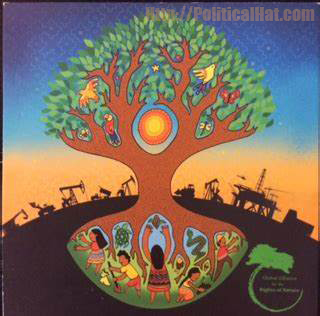Another “quick takes” on items where there is too little to say to make a complete article, but is still important enough to comment on.
The focus this time: Sorry, you’re just not as important as some random rock.
First, a little mood music:
Carrying on…

What fresh new collegiate study do we have now? How about support for inhumanity, in that it is more than just human, it’s inhuman. No, they literally call it “More Than Human Life” (MOTH).
“MOTH has already published a book promoting the idea that all of nature has rights and that the age of ‘human supremacism’ must end. This is made clear by the founder of the project, César Rodríguez-Garavito, a NYU law professor whose ‘current scholarship and legal practice focus on the intersection of climate change, biodiversity, rights of nature and human rights.’ He writes in the book’s introduction:
“‘I had founded the initiative that inspired this book, which I called the More-Than-Human Rights (MOTH) Project. Co-organized with colleagues at New York University’s School of Law, the MOTH Project brings together lawyers, scientists, Indigenous leaders, artists, writers, advocates, judges, journalists, philosophers, and other thinkers and doers from around the world who work together to advance ideas and practices that support the rights and well-being of nonhumans.
“The movement is steeped in neo-paganism — also made vividly clear in Rodríguez-Garavito’s introduction:
“‘Don Sabino did not speak of rights, but of life. ‘The forest is alive, there are spirits in the forest, they are the real rulers of the forest,’ he told me in a voice so quiet that it felt like an invitation to listen intently to the sounds all around us. . . . If the forest is alive—if the animals, the plants, the fungi, the river, the air, and the rocks are all animate beings—then we need to find ways to hear their voices and spirits.”
“One of the law schools leading the charge for this novel legal theory is New York University School of Law, which in 2022 launched the More Than Human Life Project, or MOTH, an initiative of the law school’s Earth Rights Research and Action Clinic.
“The project “is an interdisciplinary initiative advancing rights and well-being for humans, non-humans, and the web of life that sustains us all,” according to its website.
“In addition to NYU Law, for example, Harvard University will offer a course this fall titled “Rights of Nature” that ‘will examine this fast-growing field, assessing the origins, practice, and potential of granting legal personhood to natural objects.’”
![]()
No, not even a Red State like Wyoming is free from the Gaia worshippers.
“On Monday, July 1, the Town of Jackson passed a resolution to recognize and uphold the rights of nature.
“The Town Council defined nature as ‘the physical world and everything in it, including plants, animals, mountains, rivers and other features and products of the earth.’”
Ironically, those who were most adamant about not excluding human beings from these nature rights were the local Tribal Nations:
“Town staff asked various local Tribes to review the resolution, and Tribal Nations specifically prioritized the inclusion of humans as a part of nature.”
The insanity of this is manifest.
“So, wise city councilors: Do the plants in the ponds have a right not to be eaten by the moose? Do grubs have a right not to be consumed by black bears? Heck, do we have a right not to be killed by grizzlies?
“More germane to human uses of the magnificent beauty that is Jackson and the Tetons, do the trees have a right not to be cut down? If not, why not?”
![]()
All this may sound crazy to you, but it’s not crazy to those who have been taught at Arizona State University’s new “School of Sustainability”, and oh howdy is it a woke curriculum.
“Arizona State University in Tempe is making students take a course on “sustainability” in order to graduate.
“Beginning in the upcoming fall semester, students will need to take at least one class on ‘sustainability’ to meet general education requirements.
“Qualifying classes include ‘Sustainable Horticulture’ and ‘Restoration & Wildlife Plants,’ as well as some classes that do not, at first glance, appear to have a connection to ‘sustainability’ or the climate, such as ‘Hist[ory] of Black Women in America’ and ‘Race, Gender, and Media.’”
TTFN.






